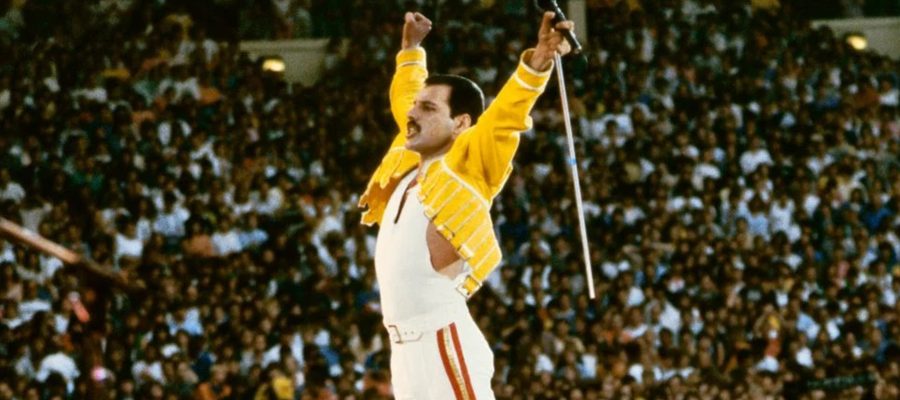Freddie Mercury, originally named Farrokh Bulsara, was born on September 5, 1946, in Stone Town, Zanzibar. He was raised in a Parsi family of Indian descent. His journey to becoming a music legend began during his college years in London, where he immersed himself in the vibrant music scene. It was in this city that he formed the band Queen in 1970, taking on the roles of lead vocalist and pianist. His distinct voice, flamboyant stage presence, and songwriting prowess catapulted Queen to heights of global fame.
Rise of a rock icon
As Queen’s frontman, Freddie Mercury led the band to unprecedented success, with their music becoming anthems of a generation. Songs like ‘Bohemian Rhapsody,’ ‘We Will Rock You,’ and ‘Somebody to Love’ were not just hits, but powerful expressions of art. Freddie Mercury’s performances were a sensory feast. With every strut and every note, he painted a picture of theatrical brilliance, hooking audiences with his dynamic presence. Whether commanding the stage with his trademark microphone stand or engaging the crowd with his infectious energy, Mercury’s performances were a sensory overload, leaving a lasting impression on all who witnessed them. Thanks to his unique four-octave vocal range, he could effortlessly navigate between tender ballads and electrifying rock anthems with unparalleled intensity.
Legacy of a legend
Freddie Mercury’s influence on the music industry is beyond measure. As one of the pioneering openly gay performers in rock music, he shattered norms and pushed boundaries. Despite his premature death in 1991 at the age of 45 due to complications from AIDS, Freddie Mercury’s legacy endures. He is a symbol of creativity, individuality, and artistic expression, inspiring numerous artists for generations to come.

